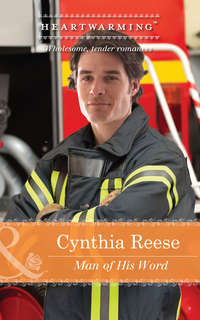
Полная версия
The Baby Wait
The stifled groan inside me rattled my innards in a frantic bid to escape. Yesterday when I’d stopped by, my mother had been her usual belligerent self, with the exception of being mostly sober, and there’d been no mention of a bare cupboard. Today’s headache was probably part of her customary morning hangover.
My jaw was tight again. I sucked in a lungful of air in an attempt to relax and not lose my patience with her. “What are you out of? Can’t you pick it up in Campbell?”
“You know I don’t, er, have a license.” She pointed out the fact delicately, leaving out the reason: She’d kept her license after her first DUI, but had a snowball’s chance of getting it back after the second one. I’d sold her car and banked the money, doling it out monthly to supplement her Social Security. Then she added, “You have sick days. You could get off. You’re off already because you went to the doctor this morning.”
“What. Did. I. Tell. You. About. That.” She’d shot my patience to hell, but at least it hadn’t been in record time.
“That you were saving your sick days for the baby.” She dragged the words out, clearly unhappy with the boundaries I’d set. Then, in a rushed, all-in-one breath, “But I need you, too, Sara, and that damn baby’s not even here yet. They’re probably taking your money and telling you that you’ll get a baby. Just like they did with all those infertility treatments.”
The reins on my temper broke, letting it run away like a wild horse. “Goodbye, Ma. I’m hanging up now before I say something I regret. And I am not answering this phone if you call back, not until I cool off.”
But as I was about to click the phone off, Ma played her trump card. “Well…I guess I could pick it up at the IGA. I have a little cash on me. And the store is just across the street.”
I held on, wondering when the other shoe would drop. And it would—with the pain of a stiletto to the instep.
Sure enough, she interrupted my, “Okay,” to interject, “Yep, I’m kinda thirsty anyway. I might pick up a six-pack while I’m there.”
I sank my teeth into my cheek to hold back the slew of cuss words I wanted to shower her with. “Okay, fine, Ma. You win. What is it you need? I’ll pick it up.”
It was only when I was slinging a gallon of milk in the grocery cart ten minutes later that I remembered I hadn’t called Joe the way I’d promised. A glance at my watch told me he was probably taking his lunch break, but I couldn’t get my cell phone to work in the store.
What the heck. I’d just stop by his job site and skip any pretense of lunch.
Joe’s current job was off Highway 80, so I hustled down Bellevue Avenue. I drove through downtown Dublin with an eye out for red lights and cops, slaloming the curve around the courthouse and cursing the idiot driver in front of me who couldn’t get the hang of using a turn signal.
The drive from Joe’s job site would take twenty minutes once I hit the open road to Campbell, where I worked as the absenteeism prevention coordinator for Bryce County schools. Make it in time to get in my half a day? Maybe, if the old guy in the rusty El Camino in front of me would make a hole and make it wide.
JOE CLAMBERED DOWN from the roof when he saw me pull up. I admired my husband’s denim-clad backside as he came down the ladder. Nearly thirty-seven years old, and he was in better shape than he’d been in high school. Manual labor had kept him hard and muscled.
I couldn’t say the same for me. At thirty-six, I had a stubborn ten—okay, make it an even dozen—extra pounds that wouldn’t come off for love or money. I had to admit it was better than when I was on the fertility treadmill. Then I’d blimped up like Mr. Big Boy.
The fear in his face abated when I sketched a wave and called, “Forgot to call. Sorry.”
“I thought—” He broke off as he neared me.
“Everything’s fine. I just thought I’d stop by and see how things are going here.”
He shrugged. “Going pretty good. We’ll get the framing done today. You going back to work?”
“On my way. Thanks for the flowers.”
A pleased expression filled his eyes. “Yeah. The azaleas were blooming this morning, did you notice? Saw it when I put Cocoa out. Damn dog was on the couch.”
“Hey, at least she wasn’t in our bed,” I pointed out.
He growled in the back of his throat. “How on earth do you think you’re going to discipline a kid if you can’t discipline a dog?”
His words struck a sensitive spot in the soft underbelly of my self-doubt. I tried to ignore them, tried to tell myself Joe was just frustrated by Cherie’s mooching call and didn’t mean any malice. It didn’t work. Just because I’d convinced the social worker who’d done our home study that I was grade-A, blue-ribbon mom-material didn’t make it so.
While I busily failed at propping up my ego, I changed the subject. “So, you’re going to get home early, then?”
“I don’t think so. I have that final inspection for the Walker house. Ought not to be too bad, but the Walkers can’t do it until after they get off. It’ll be seven before I get done, most likely. What? You got plans?”
“No, I just had crab legs in the freezer. Thought I might cook those.”
We stood there, a little awkward, neither one of us knowing what to say to fill up the silence. I loved Joe, had since high school, but sometimes his uncommunicative ways drove me crazy.
“Uh, don’t be surprised if Ma calls you looking for me,” I told him. “She’s already hit me up to bring her groceries.”
“Not unusual. Just like Cherie begging money. I told her if she wanted money, she could work for it, same as me. I’m not a finance company, and one day my little sister will realize that.”
I’d heard the angry conversation the night before, heard Joe slam down the phone. I knew the score. They wouldn’t speak to each other for two, maybe three weeks.
Not having to deal with Cherie might be a relief for me, but Joe would worry and sulk and not talk about it until the two of them finally got past that famous Tennyson pride to mumble sorry to one another. And then, out of sheer guilt, Joe would give her whatever it was she’d wanted in the first place.
Cherie brought out the absolute worst in Joe. True, Cherie brought out the worst in almost everybody. Right now, though, with the adoption making Joe so tense and with his obvious discontent at work, he didn’t need Cherie to worry about. Couldn’t she just grow up and stop her female version of the Peter Pan syndrome? Or did she think being twenty-eight too much of a drag? Couldn’t she, for once, pretend to be her real age?
Right. That had about as much chance happening as Ma becoming a teetotaler.
I put out a tentative feeler, a figurative finger in the wind to see which way Joe’s feelings were going. “So…Cherie’s in a tight spot? A little short?” Again.
The corners of Joe’s mouth tugged down and he looked back at the construction in progress.
No, Joe. Don’t bury yourself in work. Talk to me. Talk to me like you used to. Share things. Share—
But I didn’t say that aloud. No point in it. I’d been saying it for months, and every time he just shrugged it off.
“What else is new with Cherie?”
“Have you tried…talking to her? I mean, about college or tech school or—”
“Right, Sara. She’s a high school dropout. What school’s going to want her?”
I stepped back, startled by the ferocity of his tone. “I was just thinking—”
“How about you leave Cherie to me, and you worry about Ma? Huh? That a fair trade?”
Now it was me who looked away. I tried to get my emotions under control so that I wouldn’t say anything I’d regret.
“I’m sorry, Joe. I didn’t mean to— I didn’t mean anything by it.”
Something softened in his face, and he shook his head. “No, I’m sorry. I’m just…I’ve just been worried out of my head about you, and you wouldn’t let me go with you this morning, and I didn’t sleep too good last night, what with Cherie and…you. And then you didn’t call. I was sure…”
I reached up and touched his cheek. “I’m okay, Joe.”
He cleared his throat, his not-so-subtle signal that I was straying toward the mushy subjects he’d rather avoid. Sure enough, he ignored my reply. Instead, he asked, “I wondered what you were doing about lunch. Did you go by the house and get something?”
“No. What with Ma, I didn’t have time.”
“She doesn’t give a damn about you.”
The bald observation was laced with a considerable amount of bitterness.
“It’s not like she’s up for Mother of the Year,” I said. “She’s just Ma. That’s all there is to it. Can’t expect anything more than she can give.”
Joe pulled out a tape measure from his tool belt and fiddled with it, his features darkened by a frown. “How can you do it, Sara? How can you say, ‘Sure, Ma, I’ll go get groceries at the last minute, do without lunch,’ when she doesn’t care enough about you to think about what today’s doctor appointment means?”
I worked my mouth around a variety of answers, all of them some variation of, The same reason you keep extending Cherie second and third and fourth chances. Certain Joe wouldn’t find that a satisfactory answer, I just shook my head. “It’s okay. Really. It doesn’t bother me.”
Much.
“It damn well ought to bother her. She could have lost you. We all could have lost you. Bet she never thought about that.”
“Joe…” He’d been descending into these moods more and more lately. I tried hard to keep the Ma problem as separate as I could. Most times Joe dealt with her and her escapades with wry humor, but others, he was just angry. Sometimes he seemed angry that I wasn’t angry enough.
That you don’t show how angry you really are.
I ignored that inner whisper. “You haven’t lost me. You’re stuck with me for a long, long time, Joe. I promise. Really, truly. We’re going to be fine.”
But as I walked toward the car a few minutes later, I could feel his eyes on me. I could feel his doubt, as heavy as a hand on my back.
For all my cheerful optimistic reassurances to Joe, I wasn’t at all sure we’d be fine. I wouldn’t feel that way until Joe told me we’d be fine.
And for that to happen, he’d have to start talking about whatever was going on behind that carefully controlled mask of his.
MY CELL PHONE rang again as I zipped along the two-lane road to Campbell, which was replete with hand-painted signs that exhorted, Repent: The End Is Nigh.
Sure feels that way to me, I thought, as I flipped the phone open and ground out a, “Ma, I’m—”
“Whoa, girl. You sound like you’ve been on twenty miles of bad road.”
Warmth flooded me. Maggie, my best friend, my partner-in-crime.
“I have at that. The boss looking for me?”
“Not yet. How did the doctor’s appointment go?”
Leave it to Maggie to ask and Ma to completely forget the significance of today. “Fine,” I told her. “I’ll fill you in on everything when I get there, but first I’ve got to make a milk run by Ma’s. Can you cover for me at work?”
“You’re in luck. Mr. Eeyore’s gone to a meeting over at the elementary school, and he’s having lunch over there.”
I breathed a sigh of relief. Mr. Eeyore—Daryl Morris, the Bryce County school superintendent—could never be mistaken for a happy camper. Maggie worked as his assistant superintendent, so she caught the brunt of all his delegating and gloomy predictions. I, a truancy officer with a fancy title, mostly had to deal with him when we met at the coffee machine.
“Maybe that means I can get a bite to eat after all.”
“Not with Ma on your case,” Maggie told me in an all-knowing voice. “I’ll handle lunch. You handle Ma.”
With that, she rang off, and I pressed the accelerator on the car a little bit harder.
“HEY, SARA!”
I turned from the open door of my Jetta in the direction of the call. I’d recognize that bellow anywhere.
Maggie stepped away from her SUV, closing the distance between us, white paper bags in her hands. “You best be glad you got here when you did,” she said with a swirl of her wild African-print dress. “I’d be one mad black woman if I’d had to go in that doctor’s office after you. You know I don’t do ob-gyns. But I would have if I’d had to.”
Maggie didn’t “do” doctors at all. Strong, brave, tell-it-like-it-was as Maggie might be, the only way she’d be caught with a doctor was if he were writing out her death certificate. I’d given up trying to convince her to go.
I opened my arms for a soul-fortifying hug, which she gave without hesitation. Hiding my face in the cotton of her dress offered me a chance to squelch a few tears and regain my tough act. When I stepped back, I said, “Okay. So you see I survived. I told you I would.”
She blew a raspberry. “Just for that, you don’t get your treat.”
“Treat?”
“I picked up salads at Ida’s Buffet. I thought we could eat by the track then get our walking in before we headed back. Grab your shoes.”
Now Maggie really deserved the hug—lunch and conversation. What more could a girl want? As we headed to the track near the county board office, some of the tension uncoiled from my shoulders. Maggie made talking easy; she didn’t require endless explanations and footnotes.
I’d known Maggie since the first day of kindergarten—when I pulled one of the dozens of pigtails she had caught up in pastel-colored plastic barrettes. She’d backhanded me, I’d stomped her foot, and the teacher had sent us to time-out together. Once the tears had stopped, we’d bonded against a common enemy, friends forever.
Under the shade of a willow tree, the two of us munched on our lunch in silence for a few minutes before she asked, “What took so long at the doctor’s office, anyway?”
“Oh, they just had every pregnant woman in Laurens County in there.”
A look of concern flashed across Maggie’s face, but I forestalled it with, “And a Cherie look-alike. Down to the belly button ring. A few years and she’ll have the tattoo, too.”
Maggie wrinkled her nose in disgust. “LaTisha wants a belly button ring. Ewww! See what you’ve got to look forward to with Meredith? They don’t stay cute little babies for long. Their souls get sucked out of them, and they turn into teenagers.”
“You have a good, levelheaded daughter,” I reminded her. “Even if she is fourteen years old. She’s on the honor roll, she’s not dating and she unloads your dishwasher. What do you have to complain about?”
“You’re obviously forgetting that mouthy attitude she’s got these days.” Maggie crossed her eyes in apparent memory.
“Oh, yeah, where on earth did she get that? It couldn’t have possibly been from her mother.”
Maggie rewarded my sarcasm with a dig in the ribs. “Not me, girl. She got it from that low-down sorry skunk of a man who donated his sperm for the occasion. What I ever saw in him…”
I left her to ponder her ex-husband in silence while I chased down the last baby-spinach leaf in my carryout bowl. A moment later the two of us made our way to the track.
As we walked, I gave her a thumbnail sketch of Ma, and her phone call, plus the trip to her apartment. Still, not even with Maggie could I confess my real worries—my worries about Joe.
“That mother of yours,” Maggie sympathized. “No doubt about it, Nora O’Rourke is a piece of work. It’s a wonder you even want kids after a childhood like yours.”
“Your parents.” I glanced down at the pedometer snugged up to the cell phone on my belt. “Hey, we’ve done a half mile. Want to quit?”
“Hell, yes. I wanted to quit even before I started. Damn crazy idea of yours. I haven’t lost a pound yet,” she grumbled. “What about my parents?”
We trudged toward the car, the grass swishing against our shoes. “Your parents are the reason I want kids. They made it work. Your dad—he saved my life. He was the daddy I never had. Where would I be if it hadn’t been for your parents? Some kind of trailer trash strung out on meth, probably.”
It was true. The bright spots in my childhood had been at the Boatwrights’ house. Their house had reverberated with laughter and squabbles and gospel spirituals…and love.
Maggie’s mom had provided more than her share of impetuous genes to her youngest daughter. Excitable, a little overprotective and paranoid when it came to her baby girl, Cecilia Boatwright was still a generous woman, generous enough to know a little dishwater-blond waif needed all the loving she could get.
I sat in the open door of my car as I switched back to my street shoes. “Thanks, Maggie. I really appreciate you doing this for me. It was just what I needed.”
“What we need is a girl’s day out, and maybe we’ll get it soon.” She paused a moment. “Joe called me.”
“What?”
“When you didn’t call him, he called me. Thought maybe something was wrong.”
“Nothing’s wrong.”
“You’d tell me, right? You’d tell me if…something was wrong? And…I don’t mean just about the cancer.”
I looked down at the white tennis shoe in my hand. I couldn’t lie to her, but I wasn’t ready for a tell-all confession. “I’d tell you. When I knew. If I knew.”
But did I know anything? Or were my worries about Joe just me chasing phantoms?
CHAPTER THREE
I’D JUST CLICKED MY Internet icon when the phone rang. I had five minutes before I left for work, and I’d intended to check if the current DTCers had finally got their babies. All of us on the adoption message boards had been gnawing our fingernails. This crop of DTCers should have received their referrals already. The delay in referrals had stretched from one week, to two and now to three, with no real explanation.
For a moment I thought about letting the machine get the phone. When I answered it, I wished I hadn’t.
“Sara? I gotta talk to Joe!”
Uh-oh. Cherie. And what’s more, Cherie awake before noon. It didn’t bode well.
“Cherie, Joe’s already headed out to the job site. You might catch him there.” I suppressed the urge to remind her some of us had to work for a living.
“He’s not answering his cell phone. And I’ve left, like, fifty-dozen messages. I gotta have that money, Sara! I really need it.”
I gave up on the computer and hit the shutdown button, trying to figure out what exactly to say. The azalea blooms outside the living-room window had withered enough to look tired and weary as April came to a close. That’s how I felt, too, talking with Cherie.
In the silence, she jumped first. “Hey, you’ll do. Can you lend me a hundred? That’ll help.”
For a moment, her offer tempted me as strongly as if it were the map to Blackbeard’s treasure chest. The idea that a hundred bucks could make Cherie disappear for a while was a siren song. But I knew, from all my dealings with Ma, it would only lead me to crash into rocky shoals. Cherie would keep coming back.
Not only that, but it would break mine and Joe’s cardinal rule: I didn’t give money to Cherie, and he didn’t give money to Ma.
“I don’t keep that kind of cash on me, Cherie,” I told her, honest enough, as my wallet was down to its last twenty. And I damn sure wasn’t going to go hit the ATM machine for her. “Talk to Joe. Or maybe you could ask your boss for an advance.”
“I quit.”
Now my temper started to boil in earnest. “You what?”
“Didn’t Joe tell you? That’s why I need the money.”
Joe had not filled me in on this little detail. I gripped my forehead with my free hand and pressed my thumb and middle finger to my temples. “What happened this time, Cherie?”
“That new shift manager made a pass at me. Not even Saint Sara would put up with sexual harassment, would you?”
I gritted my teeth in hopes steam—or worse, foul invectives—wouldn’t spew forth.
I was no saint. That was for sure. I wasn’t even a candidate. But Cherie liked to rattle my cage by telling me I was a Miss Goody Two-shoes. She somehow thought women who actually put on panty hose for work and drove a Volkswagen felt they were superior to the rest of the working-class world.
“No, but…did you talk to your restaurant manager?”
I knew the answer before she gave me a surly, “No. What good would that do? Besides, I told Dave I didn’t think it was a good idea for us to keep seeing each other.”
“Dave?” That would be the shift manager. Apparently, Cherie had left some large, highly incriminating pieces out of her version of the story. “Were you…seeing him before he made this pass at you?”
“Not exactly. I mean, yeah, we’d slept with each other a couple of times, but he’s got no call to—”
The rest of Cherie’s words escaped me. I worried about her enduring single motherhood, STDs, HIV. Cherie floated through life aimlessly, with the mating habits—and standards—of a guppy.
“Are you looking for something else, Cherie? Have you thought about going back to school, getting your GED?”
How was it possible my serious, responsible, dependable Joe had actually come out of the same womb as Cherie? I tempered my frustration with her by reminding myself of her very real losses in life.
She’d been almost nine when she and Joe had lost their parents in a freak auto accident. She’d lived with their aunt and uncle while Joe was in college. Once we got married, she’d begged Joe to let her stay with us—and I’d agreed. In all the years since, she’d never bothered with the tedious task of growing up, at least not emotionally.
“I’m doing the best I can!” she hollered. “Just because I’m not a nine-to-fiver like you, you look down your nose at me. Forget it! Just forget it! I’ll figure something out! You never listen, Sara! You never take my side of anything!” With that, she banged down the phone, leaving me listening to silence and then the beep beep beep of the disconnect.
I left for work thinking I’d made things worse, not better. When would I learn? Damn, what defect possessed me to insert myself into their no-man’s-land?
In our front office, Lucy, the board secretary, greeted me with a panicked look on her face and Mr. Eeyore by her side. “Uh, Sara. Mrs….South is holding on line one for you.”
I stifled another groan. Mrs. South was Lucy’s code name for my mother. I chickened out.
“Uh, take a message and tell her I’m returning calls in just a few minutes,” I suggested brightly.
Lucy crooked her eyes at dour Daryl, who stood hunched over with a thick sheaf of papers in his hand. The one thing sure to make Daryl glower even more were personal calls during business hours.
“Uh, no, don’t think that will work,” she said just as brightly. “You remember the last time you tried that, she parked herself on my couch until you had a free moment.”
I folded. It was unconscionable to let Lucy take the brunt of my mother on a tirade. “Okay, okay, I’m going.”
“Sara, you think you can wrap that up pretty quickly? Don’t mean to take all of your morning, but you and I need to go over strategies to up attendance during the upcoming CRCT. Not that any of it will do any good,” Daryl said in his best Eeyore impersonation, referring to the standardized test the elementary schools gave.
“Right, right. Be with you in a sec,” I told him.
I wasn’t, of course. It took me fifteen minutes to get Ma settled down, and another five to part on good terms. My workday was toast in a blender from then on.
I met Maggie in the deserted office an hour after we could have gone home had we not been swamped with work.
“Well.” Maggie brimmed over with mock cheer. “This day was a total waste of makeup.”
“Amen, sister. Daryl’s war-room meeting about CRCT attendance chewed up my entire morning.”
“Heard anything about the referrals?” Maggie asked.
I shook my head. “Haven’t had a chance to check out the APC board. Maybe there’s good news. I could use it after today.”
I felt for the poor couples down to the last nail-biting days, only to have The Wait’s chasm yawn wide once again. Mostly, though, I’d absorbed myself with my own anxious thoughts.
Chinese adoptions were subject to the winds of bureaucratic fortune. Any number of things could cause a slowdown. It had happened before. Actually, we current adoptive parents could consider ourselves lucky. The Wait had crept up to more than a year just four or five years before, not including the paperwork. Now all we had to do was wade through The Paperchase—four to six months—and endure another six months of the official Wait.







